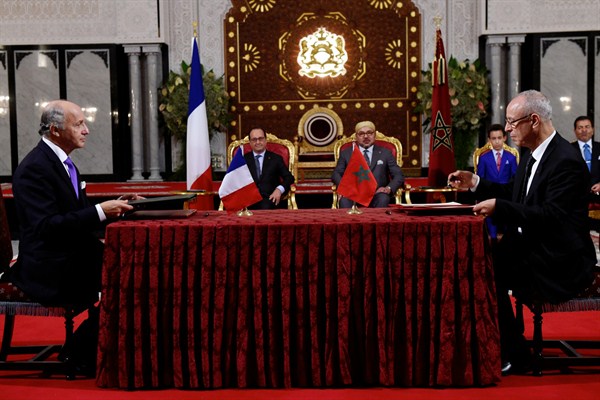Last weekend, French President Francois Hollande met with Moroccan King Mohammed VI and signed an initiative to send French imams to the Mohammed VI Institute in Rabat, a center opened in March with the stated mission of promoting religious moderation and tolerance to combat radical Islam. The visit was an attempt to mend relations, which Morocco suspended last February for nearly a year following French allegations of human rights abuses.
Although the France-Morocco initiative on imams is new, international religious training exchanges are part of an established phenomenon that Jonathan Laurence, a professor of political science at Boston College, calls “Embassy Islam.” In his book, “The Emancipation of Europe’s Muslims,” he explains that “the religious infrastructure of Muslim communities in Western Europe was, in a sense, decided in advance—not by the communities themselves, but by those who had the power to set the conditions: sending and receiving states.”
In an interview, Laurence adds that “European governments were content to ‘outsource’ the day-to-day management of Islamic religious observance, a practice that dovetailed with the interests of the countries of origin.”

